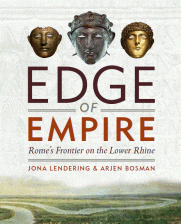Today, my little book on common errors, Spijkers op laag water, becomes available in the bookshops in the Netherlands and Flanders. I have, over the past couple of months, several times blogged about it; today, I finish this series with an article on the causes of error. It is, essentially, the epilogue of my book. You can read it here.
In this epilogue, I stress that professionalism does matter, and that “amateur historian” is just another word for “unqualified”. I also stress that specialization has disastrous consequences: there is no time to teach the logical foundations of scholarship, which means that quality control is reduced to mutual criticism. That 37 of the 50 errors presented in my book have been made by people with a Ph.D., proves that this type of control fails.
Worse, our specialists are often forced to talk about subjects outside their direct competence; you cannot expect from a classicist to explain ancient history – but in publications for the general audience and teaching to first year-students, scholars are forced to discuss subjects they are unqualified for. As a consequence, our academicians are now a more important source for false knowledge than pseudoscholars like Immanuel Velikovsky or Erich von Däniken.
This may come as a shock, but I can substantiate this claim. Since 1995, I have probably answered 3,200-3,600 e-mail messages from “the general audience”, and I came to realize that there was a pattern behind the many misunderstandings: people are perfectly capable of distinguishing scholarship from pseudoscholarship, but will be fooled when a credible author makes a mistake.
I may be wrong, of course. I even hope so. But I am unaware of other studies to the causes of misunderstanding about Antiquity, and so far, the messages I have received appear to be the only data around. Unless professional scholars can offer better figures – which is certainly possible – I think that efforts to improve scholarship must not be directed against pseudohistorians; instead, we must focus on the universities.


 Subscribe to feed
Subscribe to feed
Chapeau!
He is certainly right. I have not been looking for mistakes, but I have seen lots of careless writing, not just in history, but in other fields, similar fields where language is all there is.
Some sciences are made of words only, and words are not like bricks. They change according to time and place and even depending on every single user.
Good luck on that book.
You extol unqualified historians like Winckelmann and Schliemann. Historiography, you say, has “benefitted” from their work. But most of the fresh ideas come from outside the university; and all of the direction. Scholars need direction. They might think of themselves as the architects of history but in fact they are the bricklayers. They serve a religion, an ideology, some large vision or design. On their own, they only waddle in the mire of facts. They mostly look to substantiate a belief. The belief or the philosophy comes first. And it doesn’t come from them.
What are they doing now when there is no clear direction? How many of them tackle their subject whole, let alone the great problems of philosophy, history, or art? You’d think those had disappeared. Shouldn’t a guy who spends years looking for the truth be able to tell you not just that you err but why it matters?
The language of scholarship also shows a cultivated lack of imagination and purpose.
Let me say that you are one of the few learned men who reaches outside the university and writes in a clear way and with a purpose; for which we unqualified thank you.
[…] on the right track, so, despite the redoubtable Jona Lendering’s warning that “‘amateur historian’ is just another word for ‘unqualified’“, I’m going to have another go at […]